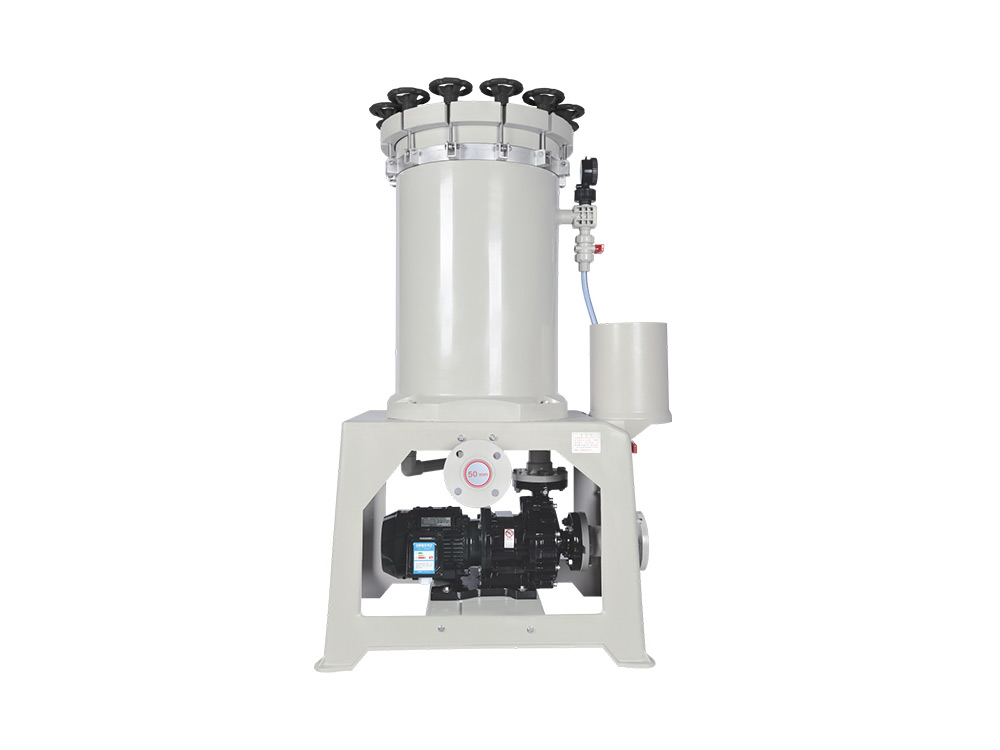
# Electroplating Chemical Filter: Enhancing Efficiency and Purity in Metal Finishing Processes
Electroplating is a critical process in the metal finishing industry, used to apply a thin layer of metal onto a substrate for purposes such as corrosion resistance, improved appearance, or enhanced electrical conductivity. However, the efficiency and quality of electroplating heavily depend on the purity of the chemical solutions used. This is where electroplating chemical filters come into play, ensuring that the plating bath remains free from contaminants and operates at optimal performance.
## The Role of Electroplating Chemical Filters
Electroplating chemical filters are designed to remove impurities from the plating solution, such as particulate matter, organic contaminants, and metal ions that can negatively impact the plating process. These filters are essential for maintaining the integrity of the plating bath, which directly affects the quality of the finished product.
### Types of Contaminants in Electroplating Solutions
Contaminants in electroplating solutions can come from various sources, including:
– Particulate matter: Dust, dirt, and other solid particles that can cause defects in the plated surface.
– Organic contaminants: Oils, greases, and other organic compounds that can interfere with the plating process.
– Metal ions: Impurities from other metals that can alter the chemical composition of the plating solution.
## Benefits of Using Electroplating Chemical Filters
Implementing electroplating chemical filters in the metal finishing process offers several advantages:
– Improved Plating Quality: By removing contaminants, filters ensure a smoother, more uniform metal coating.
– Extended Bath Life: Cleaner solutions reduce the frequency of bath replacement, saving time and resources.
– Cost Efficiency: Fewer defects and less waste translate to lower production costs.
– Environmental Compliance: Proper filtration helps meet regulatory standards by reducing hazardous waste.
### Types of Electroplating Chemical Filters
There are several types of filters used in electroplating, each suited to different applications and contaminants:
– Cartridge Filters: These are disposable filters that capture particulate matter and are easy to replace.
– Bag Filters: Similar to cartridge filters but with a larger capacity, ideal for high-volume applications.
– Depth Filters: These filters use a thick media to trap contaminants throughout the filter, providing high filtration efficiency.
– Membrane Filters: These offer precise filtration, capable of removing very fine particles and even some dissolved contaminants.
## Choosing the Right Filter for Your Electroplating Process
Selecting the appropriate electroplating chemical filter depends on several factors, including the type of contaminants present, the volume of the plating solution, and the desired level of filtration. It’s essential to consult with a filtration expert to determine the best solution for your specific needs.
### Maintenance and Replacement
Regular maintenance and timely replacement of filters are crucial for sustained performance. Over time, filters can become clogged with contaminants, reducing their effectiveness. Establishing a routine maintenance schedule ensures that your electroplating process remains efficient and your products meet the highest quality standards.
## Conclusion
Electroplating chemical filters are indispensable tools in the metal finishing industry, playing a vital role in enhancing the efficiency and purity of the plating process. By investing in the right filtration system and maintaining it properly, manufacturers can achieve superior plating results, reduce costs, and comply with environmental regulations. Whether you’re dealing with particulate matter, organic contaminants, or metal ions, there’s a filter solution tailored to your needs, ensuring that your electroplating process runs smoothly and produces high-quality finishes.
Keyword: electroplating chemical filter
